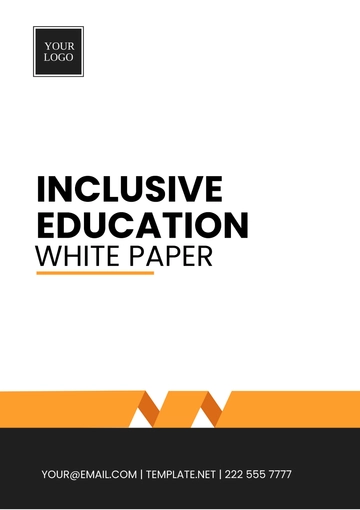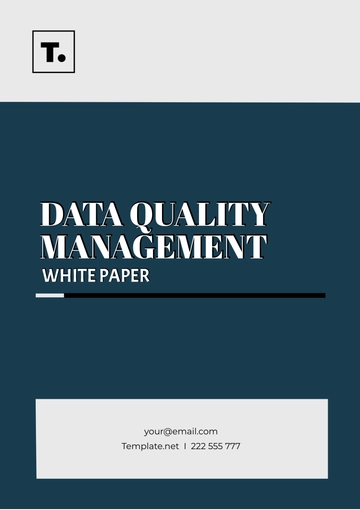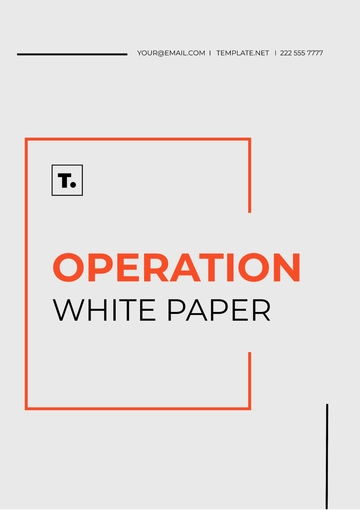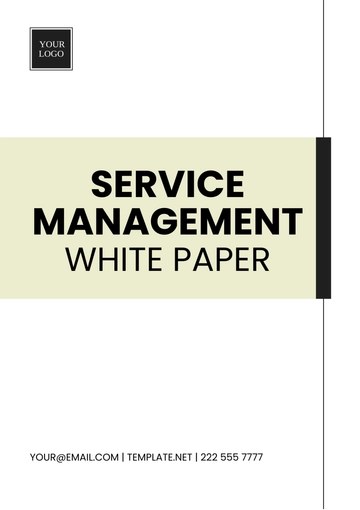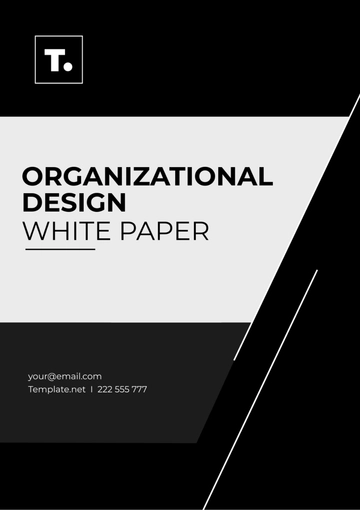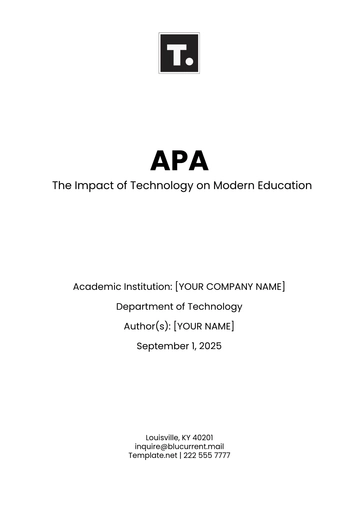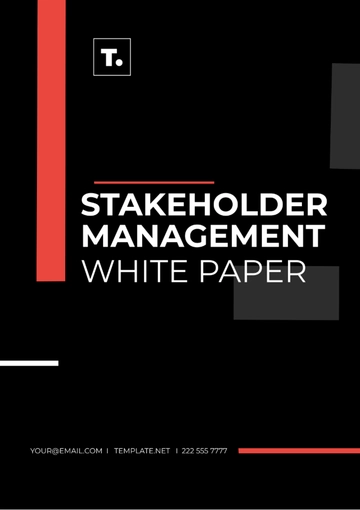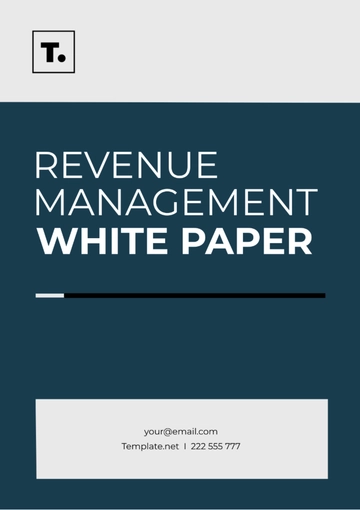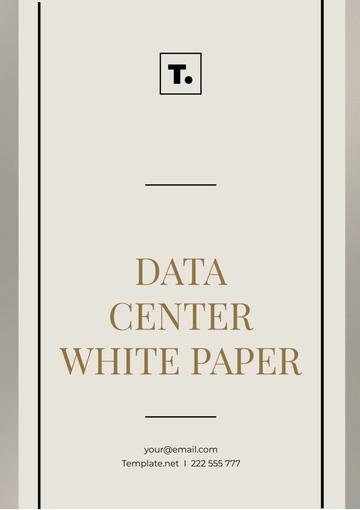Free Project White Paper
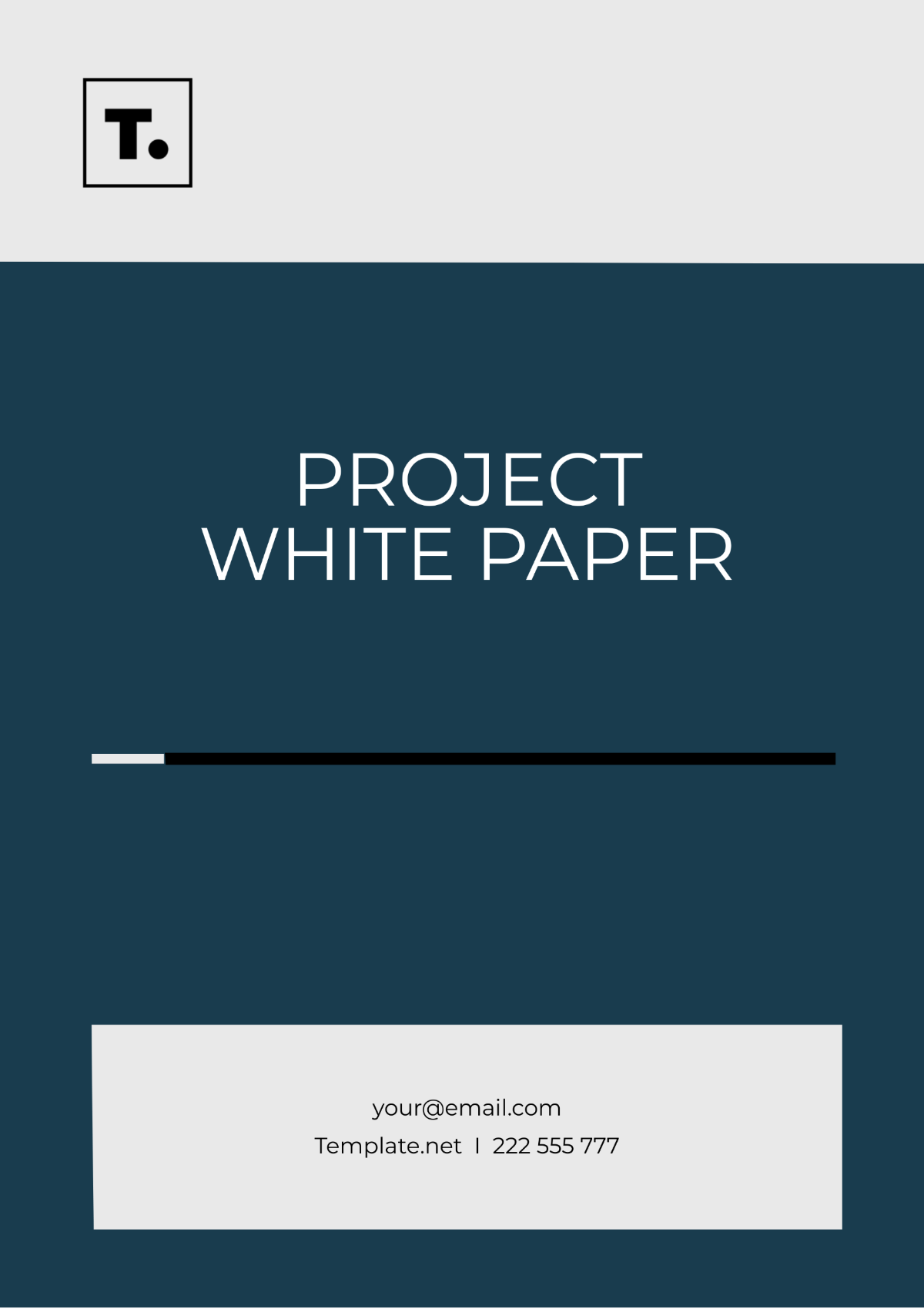
Project Title: Sustainable Energy Transition Initiative
Prepared by: Jessica Brooks
Date: August 30, 2050
1. Introduction
The "Sustainable Energy Transition Initiative" Project White Paper aims to inform stakeholders about a strategic initiative designed to facilitate the transition to sustainable energy practices in local communities.

This document outlines the project's objectives, scope, methodology, timeline, budget, expected outcomes, and stakeholder involvement.
2. Background
The project is a response to the pressing need to mitigate the impacts of climate change by reducing carbon emissions and promoting renewable energy sources. The increasing global demand for energy, coupled with the depletion of traditional fossil fuels, underscores the urgency of transitioning to sustainable energy solutions.
3. Objectives
To raise awareness about the benefits of sustainable energy practices.
To provide technical support and resources for implementing renewable energy projects.
To foster partnerships between local governments, businesses, and communities to support sustainable energy initiatives.
To measure and track progress towards achieving sustainable energy goals.
4. Scope
The project will focus on:
Conducting energy audits and assessments in local communities to identify opportunities for energy efficiency and renewable energy projects.
Developing and implementing tailored sustainable energy solutions, such as solar panels, wind turbines, and energy-efficient appliances.
Providing training and capacity-building programs for local stakeholders to promote sustainable energy practices.
5. Methodology
The project will employ a participatory approach, engaging local communities, governments, and businesses in the decision-making process. It will utilize a combination of workshops, training sessions, and outreach activities to educate and empower stakeholders to adopt sustainable energy practices.
6. Timeline
Phase 1: Project initiation and stakeholder engagement (Months 1-3).
Phase 2: Energy audits and assessments (Months 4-6).
Phase 3: Development and implementation of sustainable energy projects (Months 7-12).
Phase 4: Monitoring, evaluation, and reporting (Months 13-18).
7. Budget
The total project budget is estimated at $500,000, allocated as follows:
Personnel: $200,000
Materials and equipment: $100,000
Training and capacity building: $50,000
Outreach and communication: $50,000
Monitoring and evaluation: $50,000
Contingency: $50,000
8. Expected Outcomes
Reduction in carbon emissions by 25% in target communities.
Increased adoption of renewable energy sources, with at least 50% of households implementing sustainable energy practices.
Enhanced local capacity for sustainable energy planning and implementation.
Establishment of partnerships and networks to support ongoing sustainable energy initiatives.
9. Stakeholder Involvement
Key stakeholders include:
Local governments: Responsible for policy development and regulatory support.
Businesses: Providing expertise, funding, and resources for sustainable energy projects.
Communities: Engaging in decision-making and implementing sustainable energy practices.
NGOs and civil society organizations: Supporting awareness-raising and capacity-building efforts.
For further inquiries or feedback, please contact [Your Company Number].
[Your Company Name]
[Your Company Address]
[Your Company Email]
- 100% Customizable, free editor
- Access 1 Million+ Templates, photo’s & graphics
- Download or share as a template
- Click and replace photos, graphics, text, backgrounds
- Resize, crop, AI write & more
- Access advanced editor
Our Project White Paper Template is a comprehensive document that outlines a project's purpose, scope, methodology, and expected outcomes. Customizable and easy to use, it includes sections for project background, objectives, approach, timeline, budget, and key deliverables. Downloadable and printable, it's perfect for presenting detailed project plans to stakeholders and team members.


